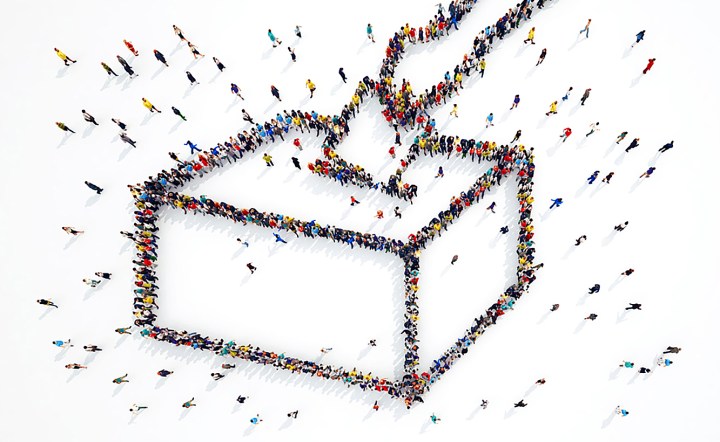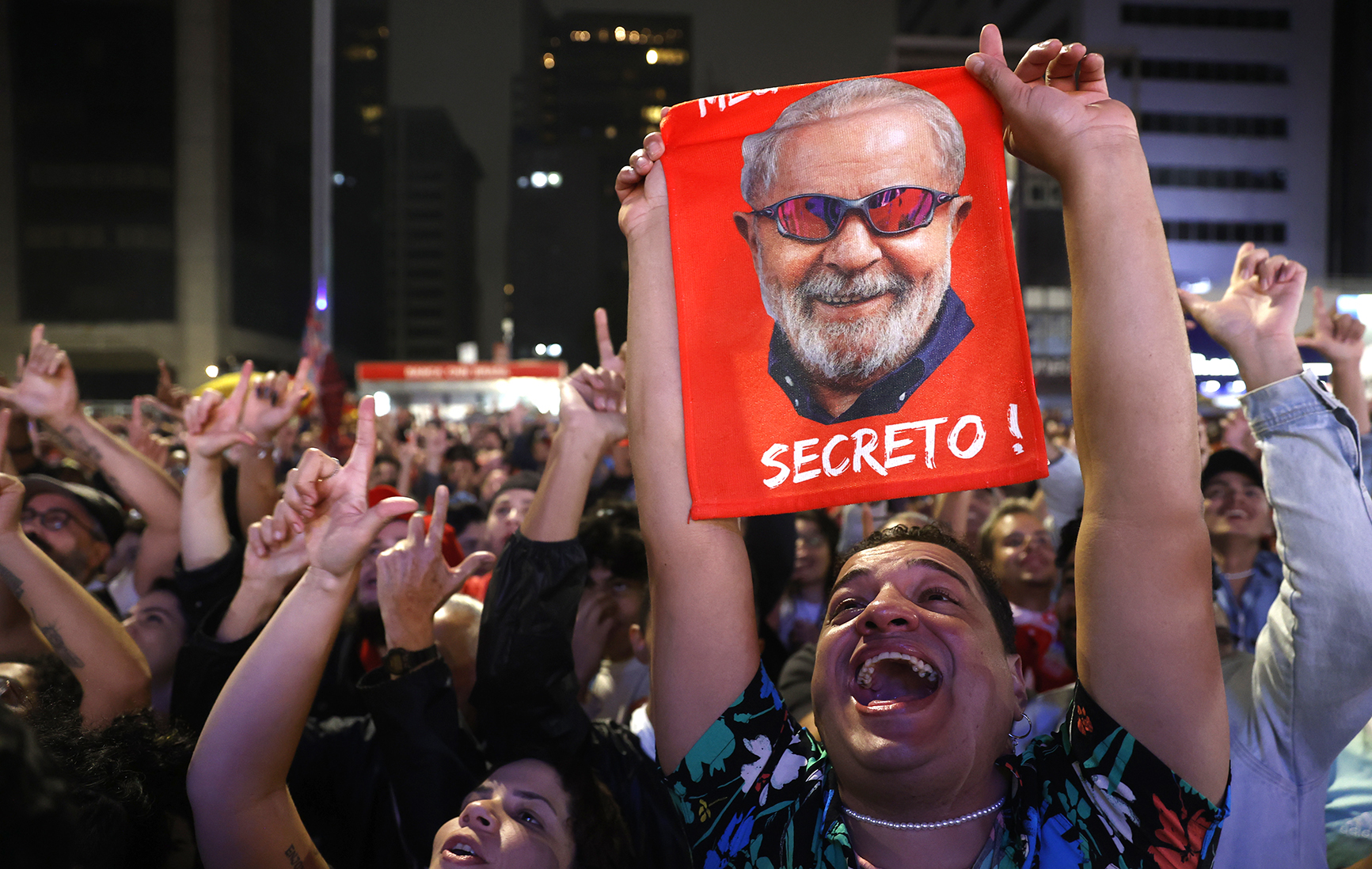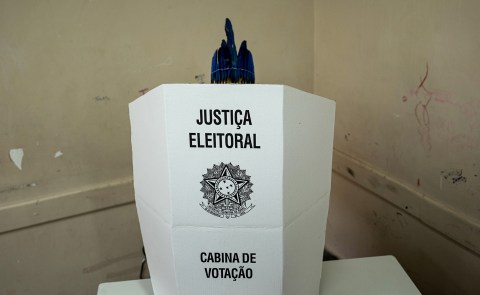TUESDAY EDITORIAL
‘Freedom is Slavery’ – disinformation threatens democracy and social justice in South Africa and globally

Elections, so central to democracy, are fast becoming a fear game, in which disinformation seems to have an algorithmic power to mobilise those who feel fearful, angry and vulnerable, while often demobilising those who still hold to world views based on human rights, equality, equity and inclusivity.
On Sunday night as I went to bed one of the last things I read on social media was a report raising the possibility that Brazilian presidential favourite, Luiz Inácio Lula da Silva, might win the election outright with more than 50% of the vote.
It was a cause for hope and peaceful sleep. “Democracy works after all,” I thought as I drifted into dreamland.
Waking up, a few hours later, it was a different story. Lula had only obtained 48.3% of the vote, but most surprisingly, Jair Bolasonaro, who exit polls and had put at slightly more than 32%, has won more than 43.3% of the vote (read the results here).
In this context, Lula’s victory, and the unifying campaign and messages that went into it, hardly feels like a victory at all.
The result means there will be a runoff election on 30 October. It is a predictor of a month of Bolsonaro-sponsored violence, further polarisation and an uncertain outcome. The question (hopefully) is not so much whether Lula will ultimately win, but whether Bolasonaro will accept the result.
Will he try to trump Trump’s 6 January escapade?

Brazilian president and candidate for re-election, Jair Bolsonaro. (Photo: EPA-EFE / Joedson Alves)
After the election, much analysis is now focusing on how the polls got it wrong. But the real question we have to ask is how 51 million people can have voted for someone who the UK Guardian describes as a “cartoonishly incompetent and malevolent figure (comparing him to Donald Trump and Viktor Orbán) presiding over the devastation of the Amazon, massive increases in poverty, and the deaths of more than 685,000 Brazilians from coronavirus.”
Read more in Daily Maverick: “Battle for Brazil’s future is not yet over — merely in ‘extra time’”
In the third decade of the 21st century, on a burning planet, on the eve of climate crisis-induced destruction, with the human cost of war evident all over the world, how could 51 million people have voted for a wannabe dictator? A man threatening war and proud to be exacerbating the climate crisis?
The answer is many that voted out of fear, their choice propelled by a pandemic of disinformation.
We shouldn’t blame the voters – but we do need to ask what is driving their choices.
Using democracy against democracy
Disinformation is defined as “false information deliberately and often covertly spread (as by the planting of rumours) in order to influence public opinion or obscure the truth)”.
Disinformation is the party without a name that is on every ballot. It is taking advantage of the deepening distrust in democracy worldwide and the shattering of the social contract.

Supporters of former president and presidential candidate Luiz Inácio Lula da Silva celebrate while the partial results of the Brazilian elections are announced on Paulista Avenue in São Paulo on 2 October 2022. (Photo: EPA-EFE / Fernando Bizerra)
Disinformation destabilises the shared foundation of meaning that is necessary for genuine democratic contest. In true Orwellian fashion it has created a new set of paradoxes:
Theft is redistribution
Inequality is liberation
Equality is imprisonment
Bodily autonomy is murder
Science is ignorance
Truth is fake
Brazil reminds us, yet again, that disinformation is now a clear and present danger to the foundations of democracy and peace.
Democracy has always involved a contest of ideas, ideologies and class interests. But for most of its life the contest started from a shared view of the world, of science, of evidence; a shared set of facts. Today, disinformation, carried by tens of millions of out-of-sight WhatsApp groups into billions of households, has changed that.
Democracy has become a fear game…
Read more in Daily Maverick: “UN General Assembly 2022: Here’s a chance for SA to stand up for human rights, not thieves and war criminals”
Unfortunately, disinformation seems to have an algorithmic power to mobilise those who feel fearful, angry and vulnerable, while often demobilising those who still hold to world views based on human rights and inclusivity.
Another tragic example, with global implications, was the voting down of the draft constitution in Chile, which many academics and commentators (not just on the left) had hailed as being a constitution repurposed for the challenges of the 21st century.
According to one book review (in the British Association of Comparative Law):
“Under the new constitution, the State would have the primary responsibility to respect, protect and fulfil social rights, in line with a social model of constitutionalism and with international human rights law.” It described the constitution as “also a noticeable step forward in terms of the recognition of the identity and cultural rights of indigenous peoples, which were simply ignored in the 1980 constitution.”

The headdress of Chief Marta Mura, leader of the Yawarite Ipixuna indigenous community, behind a voting booth on election day in Manaus, Amazonas, Brazil, on 2 October 2022. (Photo: EPA-EFE / Raphael Alves)
Put plainly, it was a constitution that would have empowered the poor and their advocates (like our own). Yet, when it came to the referendum, an article in the New Left Review reports that “the poorest neighbourhoods turned out en masse to vote against the proposed draft”.
Why?
The same article points to the sway of unofficial media: “the endless stream of TV shows featuring politicians and self-styled intellectuals spreading disinformation about the content of the draft… Among the most pervasive falsehoods were that the new constitution would abolish home ownership for the working classes, allow on-demand late-term abortions, and open the door for the secession of indigenous territories.”
The vote for Brexit, Donald Trump, Marine Le Pen and now Giorgia Meloni in Italy are more examples.
As with so many things, it’s not that we weren’t warned or couldn’t see the disinformation counterrevolution coming. The political uses of disinformation have been spelled out in films such as The Great Hack (2019), The Social Dilemma, and in South Africa, Influence.
But, carried to us on streaming services like Netflix, we treat these movies as entertainment, not fact. Not a call to arms.
Implications for South Africa
Disinformation is polarising society, leading to violence, and making progress on the great challenges of the age, particularly climate change, pandemic preparedness and inequality, near impossible.
Disinformation is being deliberately targeted at leaders, organisations and constitutions pledged to social justice; it is weaponising the very people who were once the source of electoral power for justice.
Visit Daily Maverick’s home page for more news, analysis and investigations
There’s no question that better and effective legal regulation is urgently needed for social media and the internet. But that is not sufficient on its own. It’s in the nature of social media to continually circumvent restriction; disinformation without borders operates above the rule of law at a time when multilateralism is in disarray (in no small part undermined by disinformation).
In this context countering disinformation can’t be left to chance.
Social justice activists and democrats need to develop a holistic and joined-up strategy; a campaign of “information literacy” is desperately needed.
At scale.
Activists can’t continue to treat disinformation as if it is secondary to their campaigns to advance human rights and social justice: they can’t “leave it to media specialists”.

Marine Le Pen, president of French far-right-wing party Rassemblement National. (Photo: EPA-EFE / Christophe Petit Tesson)
The best antidote to the insidious facelessness of social media is to get back on the streets in face-to-face communication, conversation and debate… working with vulnerable and anxious people to realise we are all on the same side.
Read more in Daily Maverick: “Maverick Citizens – why we write”
Tackling disinformation is not a party political issue but an existential issue, one that ought to unite people of different political opinions but who share a commitment to democracy.
This is not a faraway issue for South Africa.

President of Italian party ‘Brothers of Italy’ (Fratelli d’Italia), Giorgia Meloni. (Photo: EPA-EFE / Giuseppe Lami)
The xenophobia that is kept bubbling in our society is based on disinformation that diverts attention way from the real causes of hunger and unemployment. Disinformation still seeks to rationalise State Capture. Disinformation was a force instigating the July 2021 riots. Disinformation seeks to delay a just transition away from fossil fuels to renewable energy.
In a context where trust in South Africa too is at an all-time low (a 2021 Afrobarometer survey found that only about one in three citizens (36%) trust the Independent Electoral Commission) disinformation will be on every ballot in our decisive 2024 general election.
It’s time we took it seriously before it consumes us all. DM/MC





















 Become an Insider
Become an Insider
Disinformation? I think we have more of a problem with blatant lies and false promises by the leading party. Coupled with a predominantly uneducated population who believe the lies, we have a recipe for disaster.